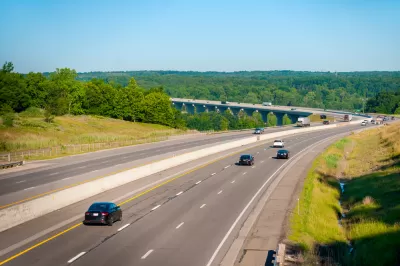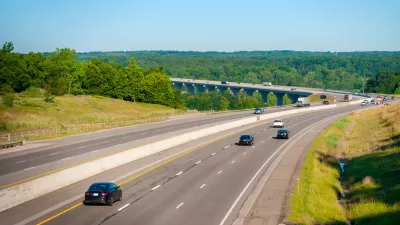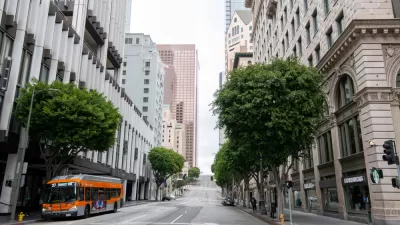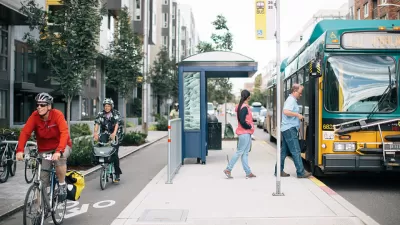The Northeast Ohio Areawide Coordinating Agency (NOACA) is moving forward with a groundbreaking policy to consider regional economic inequities when evaluating potential highway projects.

"A committee of the Northeast Ohio Areawide Coordinating Agency on Friday approved a new draft policy that would for the first time make racial and economic equity part of how it determines whether to approve new highway interchanges," reports Steven Litt.
The committee's decision to advance the new draft policy updates a story first shared by Planetizen in July.
Litt says that Northeast Ohio Areawide Coordinating Agency's (NOACA) full, 46-member board of directors "should approve the policy at its next meeting in December."
Grace Gallucci, executive director of NOACA is quoted in the article touting the policy's new approach to regional planning in Northeast Ohio. The goal of the policy is to "assess as much as we can the localized impact and the regional impact [of proposed interchanges], and to bring the board of NOACA the information so they can make a more informed decision," says Gallucci.
Litt's coverage also includes a list of the projects that would be subject to the new policy. NOACA's ability to veto projects would now be informed by newly detailed quantitative criteria for evaluating interchange projects like those listed in the article.
"New criteria would include detailed cost-benefit analysis of regional impacts on municipal budgets, economic development, environmental protection, quality of life, transit and bike use, and racial equity — both in communities receiving a new interchange and in adjacent and more distant communities," according to Litt.
FULL STORY: NOACA committee recommends policy to evaluate highway interchange proposals on racial, economic equity

Maui's Vacation Rental Debate Turns Ugly
Verbal attacks, misinformation campaigns and fistfights plague a high-stakes debate to convert thousands of vacation rentals into long-term housing.

Planetizen Federal Action Tracker
A weekly monitor of how Trump’s orders and actions are impacting planners and planning in America.

In Urban Planning, AI Prompting Could be the New Design Thinking
Creativity has long been key to great urban design. What if we see AI as our new creative partner?

How Trump's HUD Budget Proposal Would Harm Homelessness Response
Experts say the change to the HUD budget would make it more difficult to identify people who are homeless and connect them with services, and to prevent homelessness.

The Vast Potential of the Right-of-Way
One writer argues that the space between two building faces is the most important element of the built environment.

Florida Seniors Face Rising Homelessness Risk
High housing costs are pushing more seniors, many of them on a fixed income, into homelessness.
Urban Design for Planners 1: Software Tools
This six-course series explores essential urban design concepts using open source software and equips planners with the tools they need to participate fully in the urban design process.
Planning for Universal Design
Learn the tools for implementing Universal Design in planning regulations.
Gallatin County Department of Planning & Community Development
Heyer Gruel & Associates PA
JM Goldson LLC
Mpact (founded as Rail~Volution)
City of Camden Redevelopment Agency
City of Astoria
Jefferson Parish Government
Camden Redevelopment Agency
City of Claremont





























